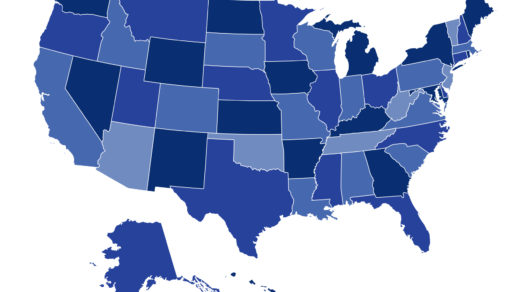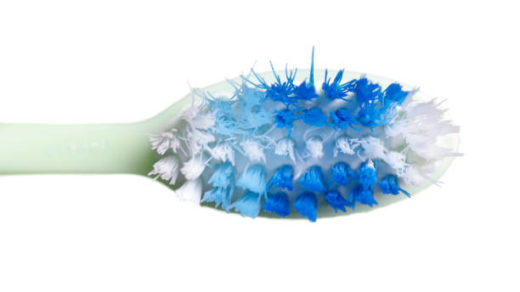While preparing for your cosmetic surgery, you will most likely be asked some questions that may seem a little personal, like: How often do you drink alcohol? Do you smoke marijuana? Do you do recreational drugs?
The answers to these questions really help your plastic surgeon understand your health, avoid complications during surgery, and provide the best post-op care.
Alcohol and recreational drugs (like cocaine, ice/meth, ecstasy and marijuana) are substances that have physiological effects on the body and its primary functions like blood circulation and breathing. The use of these substances, therefore, can impact your cosmetic surgery by interfering with the anaesthesia given to you, causing breathing or cardiac complications, and ruining the outcome of your surgery.
It doesn’t matter if you’re getting a tummy tuck, facelift, rhinoplasty, breast augmentation, or any other cosmetic surgery. Drugs and alcohol consumption can weaken your immune system, prolong healing time, and worsen recovery symptoms.
Surgeons at Coco Ruby clinic agree that good communication with your plastic surgery team and providing accurate information are key for successful cosmetic surgery and great results.
A Guide to Your First Plastic Surgery Consultation
What should you expect when you meet your Plastic Surgeon?
Do Alcohol and Recreational Drugs Really Affect Cosmetic Surgery?
Alcohol and recreational drugs, also known as party drugs or designer drugs, CAN affect cosmetic surgery during the anaesthesia phase, during the actual surgery, and when recovering from surgery.
Before cosmetic surgery, you are given an anaesthetic or sedative so you wouldn’t feel any pain during the surgery. The use of any other drugs or alcohol can present a dangerous challenge for your anesthesetist who will have to re-estimate how much anaesthesia you need during surgery.
Recreational drugs like marijuana, cocaine, ecstasy, and ice meth, cause changes in the heart rate and rhythm. So does alcohol. This can lead to a fatal outcome when combined with the effect of anaesthesia you’re given for your cosmetic surgery.
Your cosmetic surgery may involve some bleeding which your body responds to by clotting the blood. Alcohol can interfere with your body’s ability to stop the bleeding which makes you heal slower from your surgery.
As a result, the use of alcohol and drugs can prevent you from getting the best results out of your surgery.

How Does Alcohol Affect Cosmetic Surgery?
Alcohol consumption can cause many complications with your cosmetic surgery. Alcohol can affect the dose of anaesthesia you need, your heart rate and breathing, as well as, your recovery time and cosmetic surgery results. Some of the effects of alcohol on plastic surgery include:
1. Increases The Need For Anaesthetics
Anaesthetics and sedatives used in cosmetic surgery contain medication that is metabolized by the liver. Regularly drinking too much alcohol can damage liver function. Consequently, this can change your body’s reaction to anaesthesia and its ability to metabolize the anaesthetic drugs. This can lead to underestimation of the required dose, surgery interruption, and re-initiation of anaesthesia.
2. Increases Your Risk of Cardiac Events During Surgery
Alcohol can induce irregular heart rhythm and can affect your blood pressure. Drinking alcohol before a breast lift surgery or liposuction procedure, for example, can increase the risk of heart problems and breathing complications during the operation.
3. Increases Postoperative Bleeding
It is common to have some bleeding at your incision sites after plastic surgery. Normally, your blood clots on the wound to stop the bleeding.
As a potent blood thinner, alcohol gets in the way of that process and can increase the risk of post-op bleeding. Having alcohol in your system can, therefore, make it more difficult for your body to heal from plastic surgery.
4. Increases Your Risk of Infection
Another alcohol-related post-op complication is infection. Regular alcohol use can weaken your immune system and prevent your immune cells from properly defending vulnerable surgical wounds. This is why alcohol is known to increase the risk of surgical site infection after plastic surgery.
5. Interferes With Medication
Following your cosmetic surgery, you may be prescribed painkillers, antibiotics, and other medications to speed up your recovery. This is usually standard after invasive cosmetic procedures, such as breast reduction, facelift, or abdominoplasty.
Alcohol can interfere with the activity of these drugs and delay or complicate your recovery. It can make your recovery more challenging after any cosmetic procedure, whether it’s blepharoplasty or a boob job.
6. Ruins Your Cosmetic Results
Alcohol also stops you from getting the best cosmetic results from your plastic surgery by complicating the healing process of your incisions and wounds.
How Do Recreational Party Drugs Affect Cosmetic Surgery?
The recreational use of drugs before cosmetic surgery and their continued use after surgery can lead to several complications. Additionally, prolonged use of street drugs can stop you from getting the desired cosmetic results from your procedure.
Using recreational drugs before plastic surgery can:
1. Increase The Need For Anaesthetics
As with alcohol, recreational drugs also affect the way your body responds to anaesthesia.
Just like anaesthetic drugs, party drugs like marijuana and ice meth affect the central nervous system. Consequently, drug users usually need a higher dose of anaesthetics and full narcosis might be challenging.
2. Increase Your Recovery Time
Also, recreational drug use can weaken your body’s ability to fight off infections that can occur while you’re recovering from cosmetic surgery. This makes your wound healing after surgery takes longer and jeopardizes the results.
3. Increase Your Risk of Cardiac Complications During Surgery
Street drugs like crack cocaine, ecstasy, and others can have major effects on your cardiovascular system. The recreational use of drugs can lead to swings in your blood pressure and the weakening of your heart muscles.
Therefore, these drugs can cause your heart rate and breathing to slow down during surgery. That’s the same effect anaesthetic drugs have.
So, the combined effect of anaesthesia and some recreational drugs can lead to an increased risk of heart attack and might put your life at risk during surgery.
4. Cause Respiratory Complications
Smoking marijuana can cause lung problems and increase your risk of respiratory infections. These marijuana-induced lung issues can cause complications during your anaesthesia, such as increased airway sensitivity, especially if a breathing tube is involved.
5. Worsen Pain After Surgery
Regular users of street drugs like marijuana are likely to experience more pain after their gastric sleeve surgery and similar operations. This would increase the patient’s need for post-op pain management medication.
6. Cause Cosmetic Problems
The abuse of some drugs, like cocaine and crystal meth, can independently lead to cosmetic problems and physical deformities.
Cocaine Nose
Using cocaine (also called blow, crack, nose candy, snow) can constrict and close the nose’s blood vessels leading to cocaine nose. Cocaine nose is what happens when some of the tissue in the nose dies and the septum becomes perforated.
For that reason, continued use of cocaine following a nose job can damage your new nose and ruin your results.
Meth Mouth
Ongoing ice meth abuse can lead to a condition called “meth mouth’. A person with a meth mouth has tooth decay, bad breath, black teeth, and mouth lesions.
This unhealthy oral condition slows down your recovery from facial cosmetic surgery and can make your surgery results look bad. Using ice meth before or after facial surgery, lip enhancement, or chin surgery will lead to unsatisfactory final outcomes.
What to Do About Alcohol and Drug Use Before Cosmetic Surgery?
We prioritize your health and safety and aim to give you the best results you can get from cosmetic surgery. Here are our recommendations on what to do about substance use before cosmetic surgery:
- Share with your surgeon exactly which prescribed or recreational drugs you’re on and how much you’re taking. Also fully disclose your drinking habits. This will help your surgeon assess your health and plan the surgery to make it as safe as possible for you.
- Avoid drinking alcohol at least 48 hours, and ideally a week, before your cosmetic surgery. This will help your surgery run smoothly and help you recover faster and better.
- Don’t use marijuana, not even edibles, or other recreational drugs before your surgery or during recovery. This will only make it harder for you to recover, interfere with your prescribed medications, and worsen your cosmetic surgery outcomes.
Always remember that you yourself play an enormous role in protecting your own health and improving the results of your cosmetic surgery. So keep your surgeons well informed and follow their instructions.
FAQs about Recreational Drugs and Surgery:
Should I tell my doctor I smoke weed?
- Absolutely. You should tell your doctor or surgeon about any substance use no matter how infrequent. This will help your surgeon or doctor provide you with the medical best care. This information is confidential and is not shared with any other party. We won’t judge you!
Can smoking marijuana help with pain after surgery?
- Although medical marijuana has been found able to reduce pain and inflammation, marijuana use can increase postoperative pain and therefore increase your need for painkillers after surgery.
What drugs should be avoided before surgery?
- Before your surgery, you should stop using any anticoagulant drugs (blood thinners) and any recreational drugs (pot, cocaine, meth, ecstasy). Make sure you let your surgeon know about any drug you might be taking.
What happens if I drink alcohol after my tummy tuck surgery?
- Drinking alcohol after any surgery, including a tummy tuck, can thin out your blood and increase your risk of post-op bleeding. It can also prolong your healing time and put you at a higher risk for infection.


